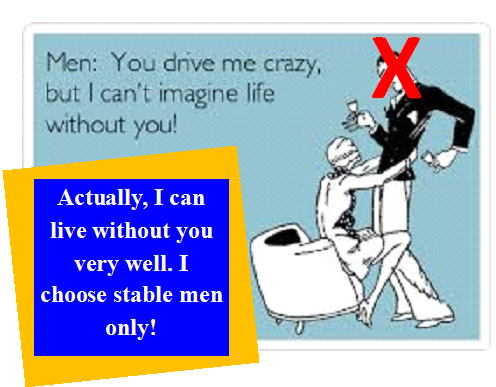Julie A. Fast's Blog, page 40
September 14, 2015
Encouragement for a Tough Bipolar Disorder Day

I had the amazing experience of being calm and stable for a few days. What a joy. That is my mountain top and I plan to work all day to get back there soon! I can deal with what bipolar disorder gives me in most areas. The work issues continue to challenge me. I will not give up. I don’t want you to give up either!
Bipolar disorder is a daily illness- at least the type I have comes up daily. There are many forms of course. Some people go months without episodes. I had a few years where I was very stable. This means it can happen again. Going with the flow helps. Not being hard on myself helps and doing my best at all times is the best I can do. I support you!
 When I’m not doing well, I use the ideas in my books to get myself into a different space. When my issues are with work, I picture the 50 strategies in Get it Done When You’re Depressed and just start using them until I am working again.
When I’m not doing well, I use the ideas in my books to get myself into a different space. When my issues are with work, I picture the 50 strategies in Get it Done When You’re Depressed and just start using them until I am working again. I often look at pictures to remind myself that life is GOOD and I simply have an illness. Look at the pictures below. Which ones speak to you? I would love to know! Please add your own pictures- ones you fell will help others affected by bipolar disorder feel better!

Julie
PS: I felt much better after I did this post! You can feel better too.





Related posts:
Bipolar depression and anxiety: A tough, tough day.. once again!
Bipolar disorder… tips for making it through the tough days.
Bipolar Disorder? You Can Get Things Done When Life Gets Tough
September 13, 2015
Concerned about a Loved One with a Mental Health Disorder?

Hello, My coaching practice is currently full, but the information in this article can still be helpful. I’m holding a group coaching call for parents soon and will post the information on this blog as soon as a date is confirmed. Julie
Do you love someone with bipolar disorder? This newsletter talks a bit more about my coaching pracice for family members and partners of people with bipolar disroder and other undisgnosed mental health disorders.
Julie, who do you coach in your family and partner coaching? Do you ever work with people who have bipolar disorder?
I hear these questions a lot. First of all, I do not coach people with bipolar disorder. I recommend my books for those with bipolar disorder and encourage people to get a strong health care team. I LOVE writing books for, speaking with and talking to people who have bipolar disorder, but in order to keep the situation stable, it’s a good policy for me to only work with those on the outside looking in.
 My family and partner coaching has changed a lot over the years. I have a system I use with all clients where they learn how to recognize symptoms very quickly and then change how they interact with the person who is ill. We have very, very quick results once my system is in place. I do a lot of crisis work where the loved one is not doing well and is often in danger and/or harming others. I like court cases, working with judges and DAs, custody cases, guardianship hearings and helping a family get a child into the appropriate treatment. The more chaotic the situation is when we start, the more I enjoy unraveling what I call the tangled ball of string.
My family and partner coaching has changed a lot over the years. I have a system I use with all clients where they learn how to recognize symptoms very quickly and then change how they interact with the person who is ill. We have very, very quick results once my system is in place. I do a lot of crisis work where the loved one is not doing well and is often in danger and/or harming others. I like court cases, working with judges and DAs, custody cases, guardianship hearings and helping a family get a child into the appropriate treatment. The more chaotic the situation is when we start, the more I enjoy unraveling what I call the tangled ball of string. My work is about my clients and their path regarding the illness of a loved one. I believe that parents and partners can only help once they are clear on a diagnosis, what medical treatment works and is needed and ultimately how to help the person manage an illness on a daily basis. I use my books with all of my clients and we learn how I manage the illness. They can then pass this on to a loved one. It works. All of my clients receive copies of my books and we use The Health Cards to create a family plan that works.
I recommend Take Charge of Bipolar Disorder for family members and Loving Someone with Bipolar Disorder for partners to start. Most people read both.
 I’ve done this for a long time now and have noticed where people need the most help:
I’ve done this for a long time now and have noticed where people need the most help: 1. The person with the illness doesn’t have a correct diagnosis. Using my charts and a system I learned from my coauthor Dr. John Preston, I help my clients get a complete picture of what is happening. This leads to a diagnosis suggestion they then take to a health care professional. It’s 99% accurate. I especially like to help in this area with children. I do a lot of work with anger, psychotic and personality disorders along with mood disorders.
2. People with more than one diagnosis. I do a lot of work pulling apart symptoms so that we can really assess what is happening. I find that psychosis is the symptom that hides the most- once it is figured out, lives can change dramatically. I also work with clients where the child has excessive and out of control anger, often from a young age.
3. Pot use. Over 50% of my client situations now involve pot. I help families and partners educate a loved one about pot and how it might affect the mood- we then come up with a plan to modify the pot smoking and if possible, get the person off completely if it’s obvious the pot is the problem. I do this a LOT.
4. Boundaries. This is my biggest success areas. Relationships get into very unstable patterns when a person in the relationship has an untreated mental health disorder. When my clients take back their lives and have strong and safe boundaries, this is where I see the most change. Yelling, fighting, throwing things, suicidal threats, aggressiveness, stealing, lying, manipulation and lack of empathy behaviors can all get better with the right use of boundaries by a family member or partner.
I’m not a therapist. I’m not a doctor. I do train therapists and doctors in my methods and my books are used around the world. My coaching is unique. If you are a family member or partner who would like to learn more, please visit my coaching page. I am getting over my own social anxiety issues and marketing myself more often so that I can help more people. We can all grow and change! I try to be an example of what I teach.
Julie
Please visit my family and partner coaching page to sign up for a complimentary intake session where I can answer your family member and partner questions.
Happiness is possible.

www.BipolarHappens.com
Please visit my BipolarHappens Blog for the latest posts on how I manage bipolar disorder.
My website www.JulieFast.com has the latest information on my speaking and coaching events as well as any recent media work.
Find me on Twitter @JulieBipolar
Find me on Facebook at Julie A. Fast and Julie A. Fast Books
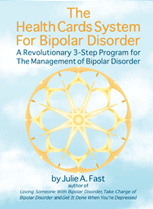
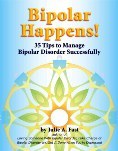
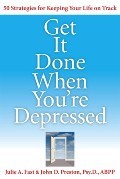
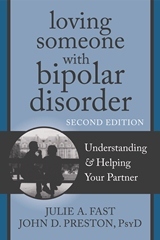
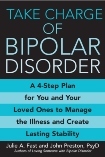
Related posts:
Guest Blogger Tara Rolstad: Parenting Children with Mental Health Disorders. It Gets Better!
Information on Julie’s books and coaching for parents and family members
Accepting New Family and Partner Coaching Clients
August 26, 2015
A Note from Julie A. Fast
Hello Dear Readers! As you can see, my websites are not in working order today. WordPress made a non authorized change to my websites and I lost my banner and menu. Please feel free to read my blogs posts below. Click here to read about my family and partner coaching. Click here to read about my books and treatment plan. Click here to read more about my work in general from my JulieFast.com website. Thank you for your patience. Julie Fast
Related posts:
A Thank You Note from Julie
Julie Fast Family and Partner Questions
bipolarhappens.com Who is Julie Fast?
Why is it so Hard to Get Help for People with Bipolar Disorder Who are Ill and Smoking Pot?
(A note from Julie, as you can see I’m having trouble with my websites due to a WordPress change. I will get them up and running as soon as possible.)
The majority of my bipolar disorder coaching practice involves a crisis situation where I help family members and partners get a loved on into treatment. In over 50% of the situations, the person with the illness is a heavy pot smoker which fuels the episode.
I have a plan I use and it WORKS, until we run into law enforcement that simply have no idea what they are up against when they go to the door of someone who has a mental illness.
In the past three days, I’ve worked with clients to locate the loved one who is ill so that we can send help. In every situation, the police arrive and the person with the illness 100% talks them out of this help. WHAT IS UP WITH LAW ENFORCEMENT? There is training out there!
One parent wrote me recently and said that the police officer who was sent to help his suicidal son who is aggressive and disruptive to the family called the father back and said- “This looks like a family problem, why won’t you help him?”
Can you even imagine a doctor saying this if we called for help for someone who is having a stroke or heart attack?
 Here’s a quote from a People Magazine interview I did about Amanda Bynes called ‘Why It’s So Hard to Help Amanda Bynes’.
Here’s a quote from a People Magazine interview I did about Amanda Bynes called ‘Why It’s So Hard to Help Amanda Bynes’.
“Indeed, Bynes was released from the psychiatric facility following a mandatory hearing that occurred three days after a judge ruled she needed to spend at least another month in treatment.
But her release doesn’t mean her mental illness is in check. Says family coach Julie A. Fast, who’s written several books on mental health, including Loving Someone with Bipolar Disorder: “Somebody with psychosis can be raging, screaming and threatening to kill you, but in front of an authority figure they can completely calm down.”
There is good news- my goal is to get someone into treatment and I do help families and partners make it happen. Sometimes we get help from the police and most often we do it on our own. It is possible! I wish Amanda’s parents would call me!
Julie
PS: We are in a marijuana crisis that is growing daily. Pot and bipolar disorder don’t mix. Ever.
Click here to read more about my family and partner coaching. I am here to help.
[image error]
Related posts:
The New Psychotic Pot: Is High THC Marijuana Dangerous for People with Bipolar Disorder?
Ten FACTS I’ve Learned from Coaching Family Members and Partners of People with Bipolar Disorder
Parent of a Child with Bipolar Disorder?
August 20, 2015
Bipolar Disorder is an Everyday Challenge we can Meet!
When you have bipolar disorder, doing your best means doing what you can within the parameters set by the illness. This isn’t being negative or hopeless, it’s being realistic.
I HATE IT! yuck! Ick!
But it’s my life. When you love to work as much as I do, learning what you can and can’t do in order to stay stable is essential for success. It’s not a situation that has an end point. I wish I could just climb a mountain and reach a summit that says-
Julie, you now know exactly what you can and can’t do!
It’s not fixed this way. Every week I learn more about myself and am more accepting of what I do accomplish instead of always thinking I could do so much more if I were just able to work like a ‘regular’ person. Bipolar disorder affects me daily as it probably affects you or someone you care about- it affects EVERYTHING. Learning to live with this fact has helped me stay stable and productive.
It’s a daily process to be kinder to myself for having bipolar disorder.
Julie
Related posts:
We can all get better and better no matter what…..
Reader comment from Gail
BipolarHappens.com Fast Food Challenge
July 15, 2015
Bipolar Disorder and Focus Problems: How Do You Do it Julie?
 Here is a reader question from Michelle. She asks important questions. How DO we get through the days, weeks, months and years when we have focus problems because of bipolar disorder! (By the way, writing this felt like going to the dentist!)
Here is a reader question from Michelle. She asks important questions. How DO we get through the days, weeks, months and years when we have focus problems because of bipolar disorder! (By the way, writing this felt like going to the dentist!)
**
Hi Julie!
Can you please tell me how you are consistently productive and living with bipolar disorder?
I too, am a writer, and I start projects, but can’t finish them. I have boundless energy for awhile, then I crash. I can’t commit to making long term projects with people because I can’t depend on myself that I can follow through. Where do you get your energy? How do you manage on a daily basis? I wake up each day not knowing how I am going to feel. I have to live day by day, and it sucks. Any positive feedback and/or advice would be greatly appreciated.
Michele
Hi Michelle,
Thanks for your question- to be honest, I go through everything you describe above- and I go through it every single day. My life changed when I learned to work as much as possible despite all of the bipolar symptoms. I created my Health Cards Treatment Plan for Bipolar Disorder in 1999. I have used the system every day for ten years- that taught me how to manage the illness. I learned what triggers most of my mood swings and how I have to take care of myself in order to be well enough to function. Without the Health Cards, I would not be able to work or have stable relationships. They saved my life. But, there are days when sticking to my plan feels impossible. I work though a haze of a mud bath where each step takes all of my energy.
Having a system doesn’t take away the illness. I agree with you, it’s exhausting. But, what matters is that we DO get things done.
It may seem like I really have bipolar disorder taken care of, but I still live with strong and constant bipolar disorder symptoms- today for example: I got up and had a hard time focusing on what I (this is hilarious- I just went back to read this and see that I just left this sentence hanging!)
I want to write a blog every day, but wow, I’m lucky if I do one once a week.
I’ve learned to compare myself ONLY to others with bipolar disorder. If I compare myself to those without the illness, I will be a wreck.
I realized one day- with perfect clarity- that I didn’t want bipolar disorder to control my life. I did everything possible to change what was making me more ill. I had to find my triggers and reduce them or stop them. Then I kept trying meds until I found ones that work at the lowest doses possible.
On some days it’s so hard I actually have panic attack symptoms when I try to write. On most days I just keep on trucking!
I could go on and on here- but my biggest piece of advice is to focus on the outcome of a project. If you focus on the project itself you will get overwhelmed. I know that if I stay here I will not only get work done, I will feel better when I do go see friends later this evening. This is all explained in my book Get it Done When You’re Depressed: 50 Strategies for Keeping Your Life on Track.
All of your excellent questions are answered in my books with a lot more detail- these are big questions so I can’t do them justice here. All people with bipolar disorder have them. I’ve managed to create a life where I can get things done because I use my own work on a daily basis. It’s already written down so I don’t have to constantly try new things.
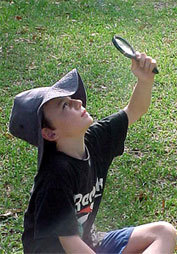 I am sometimes so anxious – my focus is that of a seven year old! I’m staring and this and then I realize I’m not even looking at the page. I’m in some kind of catatonic fugue. But I will keep going because I know what outcome I want for today. I know you can do the same. It takes time. I’ve been using my system for 15 years – it’s fully in place now with myself and all of the people in my life. I’m here at a coffee shop writing this– I almost quit many times. I know that I want to have a new blog post and to do that I have to keep sitting DOWN.
I am sometimes so anxious – my focus is that of a seven year old! I’m staring and this and then I realize I’m not even looking at the page. I’m in some kind of catatonic fugue. But I will keep going because I know what outcome I want for today. I know you can do the same. It takes time. I’ve been using my system for 15 years – it’s fully in place now with myself and all of the people in my life. I’m here at a coffee shop writing this– I almost quit many times. I know that I want to have a new blog post and to do that I have to keep sitting DOWN.
Thanks again for your question. You can be a professional writer- it just takes a plan you can use every day! I wrote my first book at age 33- I used to start and stop projects and wonder why I was such a failure- when I realized it was bipolar disorder and that managing the illness helped my writing, I started to have success.
Julie
Related posts:
Bipolar Disorder Focus Problems?
Focus, Focus, Focus!
What is it like to work with Julie A. Fast???
July 5, 2015
Bipolar Disorder Agitated Mania/Dysphoric Mania
 The main difference between Bipolar I and Bipolar II is the type of mania. Bipolar I has full blown mania- Bipolar II has hypomania. Bipolar II never has full blown mania- if it happens, the diagnosis is changed to Bipolar I. People with Bipolar I can definitely get hypomanic as well as fully manic!
The main difference between Bipolar I and Bipolar II is the type of mania. Bipolar I has full blown mania- Bipolar II has hypomania. Bipolar II never has full blown mania- if it happens, the diagnosis is changed to Bipolar I. People with Bipolar I can definitely get hypomanic as well as fully manic!
Euphoric and dysphoric mania…..
There are two types of mania seen in both Bipolar I and Bipolar II : euphoric mania and dysphoric mania . Euphoric is just like it sounds. Dysphoric is harder to understand as we are not used to the word! Dysphoric mania means agitated mania. It’s a very uncomfortable feeling!
There is a lot of mental and physical agitation with dysphoric mania , but a person in this mood swing can be very aggressive and even violent. There are always sleep problems – the person looks haggard and worn out. They may sweat a lot and can look pretty wild in the face. I went through this with my former partner Ivan. He was in a dysphoric mania/psychotic episode for three months. He doesn’t get euphoric mania.
Whew. This illness is very complicated. If you have bipolar disorder, what kind of mania do you experience the most? If you care about someone with the illness, how would you describe their mania?
I have bipolar II hypomania. I mainly dealt with euphoric mania from age 17 until I was in my 40s. Then the dysphoric mania hit me hard! I force myself to get help when the euphoric mania is here. It’s hard to ask for help during dysphoric mania as you feel like everyone else is the problem.
It takes a lot of practice and self awareness to acknowledge and get help for bipolar mania!
Julie
Related posts:
Bipolar Depression and Mania (euphoric and dysphoric)
BIPOLAR DISORDER MANIA 101: Do you know the difference between dysphoric and euphoric mania?
Bipolar Disorder Dysphoric Mania: Just work through it Julie!
July 3, 2015
Tips to Talk with Kids about Bipolar Disorder and Life in General
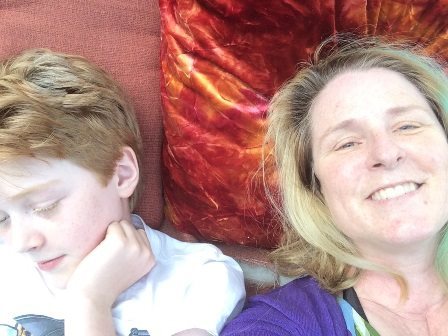 Here’s a pic from last summer. I’m lying on the hammock with the greatest person I have ever met in my life- my nephew David.
Here’s a pic from last summer. I’m lying on the hammock with the greatest person I have ever met in my life- my nephew David.
He has taught me so much.
He turned 13 this year and the inevitable changes are happening in our relationship. When he turned 11, I started talking with him about the changes he would experience as he became a teenager so that I could prepare myself for when nights at home with Auntie Wee would not be a priority.
I believe we can talk to kids from a very young age about emotions and behaviors so that they can learn empathy, compassion, self belief and personal strength as they get older. I started teaching David about bipolar disorder when he was four. I wanted him to understand his Auntie Wee even if he could not intellectually express what he was seeing- I knew the emotions were there and that he would need to know why there were some days where I talked like a Tasmania devil and on others I had trouble getting out of bed.
He tells me now that all of the talk about my illness helped.
We were in Starbucks last week and had the following conversation:
Julie (also known as Auntie Wee): David, have you noticed that you don’t want to spend as much time with me as you used to?
David: (Looks at me a bit surprised) Yes! I have!
Julie: Did you know that’s normal. It has a lot to do with testosterone and getting older. You’re more interested in being with your guy friends and doing role playing and use your nerf guns. You probably don’t want to hang out with your mom and grandma as much either.
David: (Looking even more surprised) Yes! Is that why I want to spend a lot more time with my dad?
Julie: Of course- you want to do guy stuff. Are you more interested in girls?
David: I am.
Julie: That is completely natural too. I am fine with spending less time with you. Let’s figure out what you can do with your dad this summer so that you can spend more time together.
David: Cool.
I then did a little jig at the counter to embarrass him. HAHa.
The next week, we talked with his dad about doing jujitsu together and David signed up and my brother took him to his first class!
Learning to talk with kids takes practice. I have experimented using all of my coaching skills with younger kids and teens- and it’s working.
If you have bipolar disorder, I believe it’s important to let the kids know what you are going through in an intellectual way- being overly emotional is not helpful in my option. Explaining what is happening and how kids can help- even kids as young as four can make a huge difference in THEIR future. They are allowed to grow and have their own lives even when you might be struggling.
Julie
Related posts:
Bipolar Disorder Depression and My Nephew
Note from My Nephew David
Are you a parent of a child with bipolar disorder?
June 15, 2015
A Bipolar Disorder Blast from the Past.. it’s always something!
 This is a blog post from 2009. I’m sharing it today because it shows how far I have come and how far you can come when you get a management plan that works. I read this and realized that these work and depression episodes don’t happen to me anymore. My depression, mania, anxiety and psychosis are always lurking, but they are under control. I have tools for the situations I describe below. I write about them in my books. I NEVER thought I would have the life I have now, but I do. I’m happy, stable and I CAN WORK!
This is a blog post from 2009. I’m sharing it today because it shows how far I have come and how far you can come when you get a management plan that works. I read this and realized that these work and depression episodes don’t happen to me anymore. My depression, mania, anxiety and psychosis are always lurking, but they are under control. I have tools for the situations I describe below. I write about them in my books. I NEVER thought I would have the life I have now, but I do. I’m happy, stable and I CAN WORK!
From 2009
I always know I’m depressed if I wake up and suddenly hear an avalanche of negative thoughts. Sometimes I wake up and think- hmm, what fun things do I have to do today? Those are miracle days where I just get out of bed and look forward to the hours ahead.
I had extreme trouble sleeping last night. True insomnia- it’s so different from mania sleep issues. I had to take two ativan (A benzodiazepine/anti anxiety med) – two ativan means I will get really tired this afternoon. I usually stick to one. But at least I finally got to sleep around 2:30 AM.
This means I lost the hours of work I was going to do this morning. What can I do but just get on with it! I’m lucky I didn’t have a deadline this morning.
I’d rather be tired than depressed. I made a list of my plans for the day. I made one last night before I went to sleep as well. This helps if I wake up depressed!
Have you ever thought that IT’S ALWAYS SOMETHING WITH BIPOLAR DISORDER! and it always helps to get out of bed before the thoughts take over. I did that this morning and vacuumed my room. I’ve been upset with myself for weeks because I didn’t vacuum my room. It takes more time to worry than to DO.
Julie
*********
2015 update: We can get better! I lived with this kind of depression for way too long. There is a way out. It doesn’t have to be like this and life can be good.
Related posts:
Bipolar Disorder in the Early Morning
Bipolar Disorder and Sleep: I want to fall asleep on my own tonight
Sleepy vs. Side Effect Drugged Sleepy
May 18, 2015
Bipolar Disorder and Relationships: When I have to ask myself, should I stay or should I go……..
My answer is completely dependent on how the other person is affecting my bipolar disorder!
I’m at a cafe answering my coaching inquiries and heard these song lyrics:
Loving you was never good for me.
I’ve lived in that world with a few men and I’m very happy to say that I stopped the behavior 100%. I learned that having someone in my life who makes my bipolar disorder worse isn’t an option.
I have a zero tolerance policy for ANYONE who willingly makes my bipolar disorder worse. It’s not about them- I don’t control the behavior of others, but I sure as heck can decide to stay or go.
I made the decision to GO! GO! GO! when my bipolar disorder is triggered.
This was years ago and I’m happy and stable now. So much of my bipolar disorder was about my behavior around romantic relationships. When I removed the equation, I started to heal and became more stable.
You can do the same. Should I stay or should I go is another great song lyric. Life became so simple for me when I left the people who hurt me. Life is even better now that I don’t let them into my life at all!
Julie
Related posts:
Bipolar Disorder and Romantic…. Love… ah….
Bipolar Disorder: Relationships and Respect: Reader Question
Question: My husband isn’t getting help. Do I stay or do I go?
Julie A. Fast's Blog
- Julie A. Fast's profile
- 67 followers




